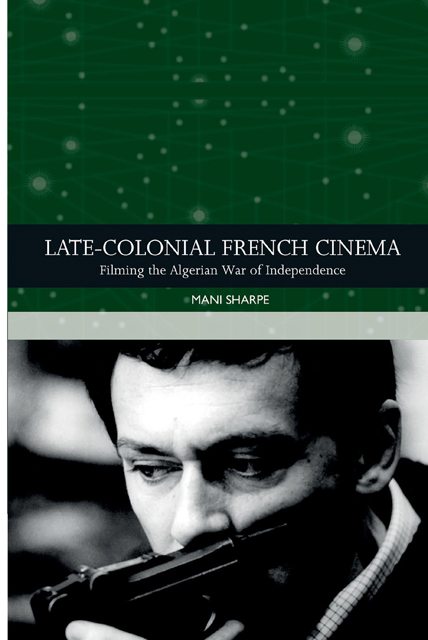2 - Stardom, Atrocity and the Beauty of Violence
Published online by Cambridge University Press: 13 April 2023
Summary
On 6 November 1954, a curious coupling of text and image appeared on the front cover of Paris Match, a weekly news and celebrity magazine published in France (Figure 2.1). On the left: a neatly formatted cover line, informing the reader that ‘the wave of terror [had] crossed the Algerian border’, in short, elliptically alluding to a spate of attacks perpetrated five days prior by Algerian nationalists in French Algeria against settlers, known as Red All-Saints Day, or Toussaint Rouge (see Introduction). On the right: a gently looming photograph of the Italian actress Gina Lollobrigida, whose svelte physique and flawless white complexion temper this announcement with the promise of intimacy. What to make of this puzzling tension between a cluster of words that are themselves misleadingand the physiognomy of a cinematic star, whose darkly erotic gaze, orientated towards us, in turn orientates our own gaze away from the trauma of what is written and towards the splendour of what is shown? Should the obscurantism of this cover, that is to say, the ways in which it does not explicitly reveal the ‘terror’ to which it alludes, be unequivocally attributed to the insidious effects of journalistic (self) censorship, as we might assume, or could we read it another way, aligning it, perhaps, with the ideological processes of ‘deformation’ and ‘distortion’ that Roland Barthes would famously explore in his semiological reading of a 1955 Paris Match cover, itself featuring a similarly over-determined image of a saluting black soldier ([1957] 1989c: 195)? Even more importantly, what exactly was the relationship between cinematic stardom, de-colonial politics and late-colonial ethics? Such are just some of the questions that I will attempt to answer in this chapter, turning my attention to two late-colonial narratives, Alain Cavalier’s 1964 film noir thriller L’Insoumis/The Unvanquished and Mark Robson’s combat film Les Centurions/Lost Command (1966).
The relationship between politics and stardom is the subject of a voluminous theoretical literature, onto which this chapter aims to build. Many of the concepts that exist within contemporary star studies stem from concepts proposed by the French cultural theorist Edgar Morin, in his pioneering book, Les Stars/ The Stars.
- Type
- Chapter
- Information
- Late-Colonial French CinemaFilming the Algerian War of Independence, pp. 56 - 71Publisher: Edinburgh University PressPrint publication year: 2023

